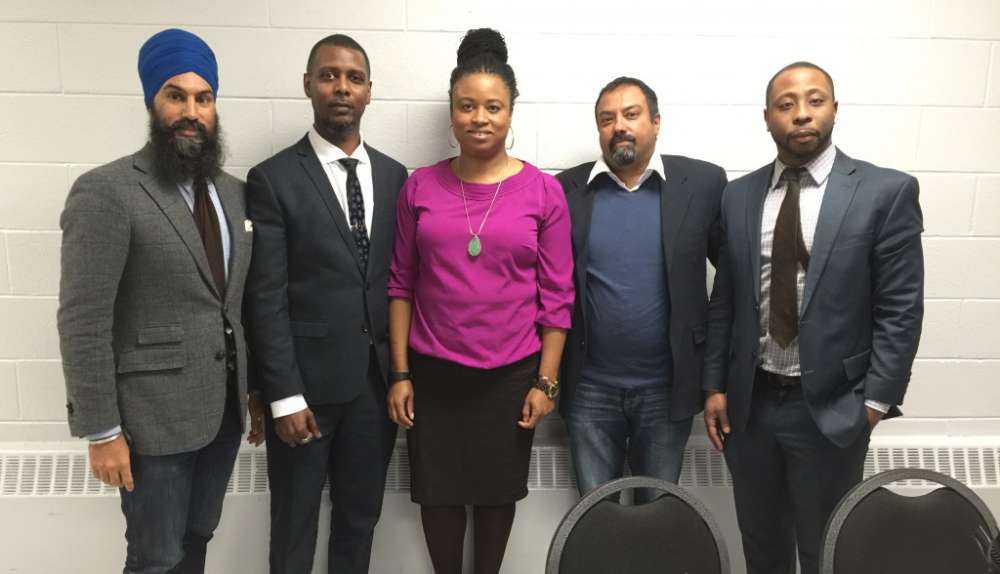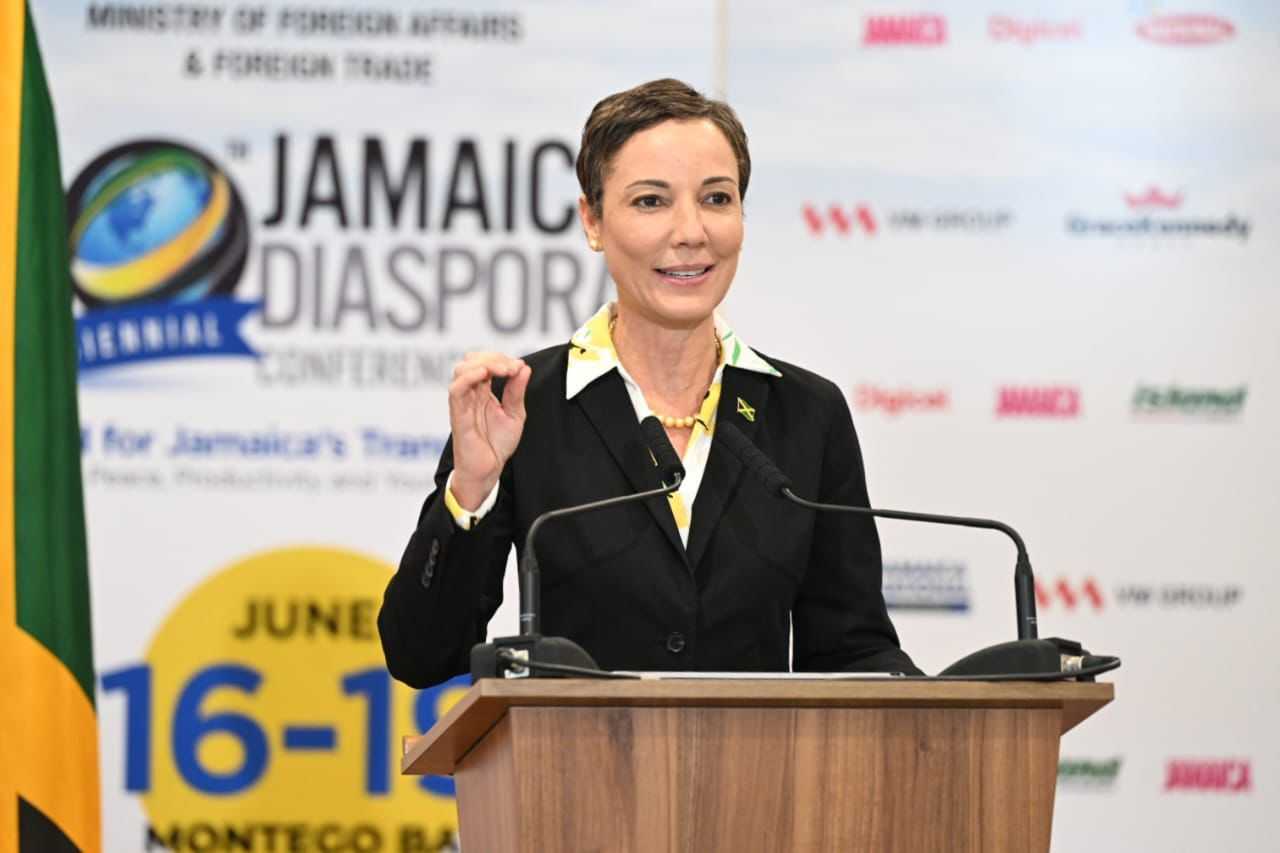BY SIMONE J. SMITH
I tell you, the team at Humanity Ova Vanity is solidifying their place in Toronto’s creative scene. It is incredible to see an organization embrace the essence of human creativity, curating experiences that transcend superficiality and celebrating the authentic expressions of people.
With every event that the Toronto Caribbean Newspaper is invited to, I am exposed, and have a deeper innerstanding about their commitment to showcasing the richness of human ingenuity. Through their curated experiences, they invite the world to witness the beauty that arises when humanity comes together in genuine expression, fostering connections and inspiring others to embrace their own creativity.
On Tuesday, April 2nd, 2024, the Black Screen Office (BSO) hosted a Fireside chat with O-T Fagbenle, an acclaimed: actor, writer, and director known for his roles in: “The Handmaid’s Tale,” (which earned him an Emmy nomination for Outstanding Supporting Actor) “The First Lady,” and his creation “Maxxx.” In 2022, he starred as Cameron Lautner in the Apple TV+ drama “WeCrashed,” a series inspired by the tumultuous story of WeWork, and O-T can next be seen in the upcoming series “Presumed Innocent,” for Apple TV+ opposite Jake Gyllenhaal and Peter Sarsgaard.
The exclusive fireside chat in conversation with Donisha Prendergast was held at the Toronto Regional Board of Trade (The Quay) that forms part of the BSO Symposium, a platform dedicated to amplifying authentic African narratives and fostering substantial representation in the arts. The symposium successfully facilitated featured speakers from overseas and connected students with the opportunity to participate in creative discussion. The discussion revolved around bringing authentic African stories to life. It’s evident that African stories have been untold, mistold, and marginalized. While there are efforts to address this, they often seem minimal compared to the potential for true representation and impactful storytelling. The goal is to catalyze change.
The symposium became a starting place of strength, celebrating the global influence of African culture—the “origins of cool.” It featured: decision-makers, broadcasters, streamers, funders, distributors, producers, and creatives in the screen industry, a day for collective ideation on what’s possible, not just locally but globally.
The symposium was hosted by Melanie Nicholls King, and featured keynote interviews (Sean Cohan), and presentations from esteemed guests (Jully Black, Mark Bamuthi Joseph, Rob Maylor), roundtable discussions, networking opportunities, and special presentations. “This enriches our collective endeavor, making it not just a meeting but a milestone event for actionable change,” shares Donisha Prendergast Founder at HOV.
Joan Jenkinson, Executive Director of the BSO, stated, “Our mission at the Black Screen Office extends beyond initiating dialogues; we aim to enact real change. O-T Fagbenle’s participation underscored our dedication to creating an inclusive screen industry that celebrates the richness of Black stories.”
If the success of the symposium was not enough, the rainy evening of April 2nd, 2024, brought its own treat. I made my way down to Its OK Studios to watch Canada’s #1 weekly podcast (now available on Apple Music), to watch a live episode of Extra Gravy with hosts: That Dude McFly, Alicia ‘Ace’ West and Big Norm. O-T made his second appearance of the day to screen episodes of “Maxxx!”
This will be a reunion of sorts and nothing short of comedic, as Marlon was one of the comedy writers who workshopped the development of Maxxx in Toronto (now showing on Channel 4 and later picked up by Hulu).
The highlight of my night was my sit-down interview (stay tuned for that) with Rob Maylor, a Jamaican-American lawyer, producer, and spearhead at Mental Telepathy Pictures. He is noted for executive producing “Sprinter,” championed by Jada Pinkett-Smith and Will Smith. Collaborations with luminaries like Shaka King and companies such as Hillman Grad showcase his commitment to authentic storytelling.
With a rich background including stints at UTA, Mark Burnett Productions, and Magnolia Pictures, Rob’s expertise extends to notable projects like: Paramount’s “Bob Marley: One Love,” and HBO’s “Get Millie Black.”
I am excited about what he shared with me, and I know it is going to excite our creatives who are reading this. The Jamaica Promotions Corporation (JAMPRO), an agency of the Ministry of Industry, Investment & Commerce and home of Jamaica’s Film Commission, has announced the opening of the Call for Applications under the Jamaica
Screen Development Initiative (JSDI).
The JSDI is a J$1 billion financing initiative by the Government of Jamaica (GOJ) aimed at bolstering and enriching the local film industry while attracting destination films. Through the JSDI, filmmakers, animators and creatives will be supported in developing eligible, local screen-based projects across various stages of development.
The Call for Applications for grant and loan support for Development, Production and Post-Production (Completion) phases end on April 28th, 2024. However, applications for Film Festivals and Market Attendance, applications for Marketing and Distribution, as well as Production Rebates will be accepted on a rolling basis.
Applications will be subjected to a validation check to ensure eligibility and assessment by an evaluation panel comprising local and international film industry experts. Assessment factors include: the strength of the application, demonstrated track record and/or ability to progress project development and execution, financial feasibility, market interests and marketing plan, as well as the overall benefit of the project to the Jamaican economy.
Exciting indeed! Application guidelines as well as the application form can be found at: https://dobusinessjamaica.com/jamaica-screen-development-initiative/.
Incredible work is being done here in Toronto, and we are so happy to be at the helm of it.


 Community News1 week ago
Community News1 week ago
 Community News2 weeks ago
Community News2 weeks ago
 Community News2 weeks ago
Community News2 weeks ago
 Community News1 week ago
Community News1 week ago
 Community News6 days ago
Community News6 days ago
 Community News6 days ago
Community News6 days ago
 Community News6 days ago
Community News6 days ago
 Community News6 days ago
Community News6 days ago

























